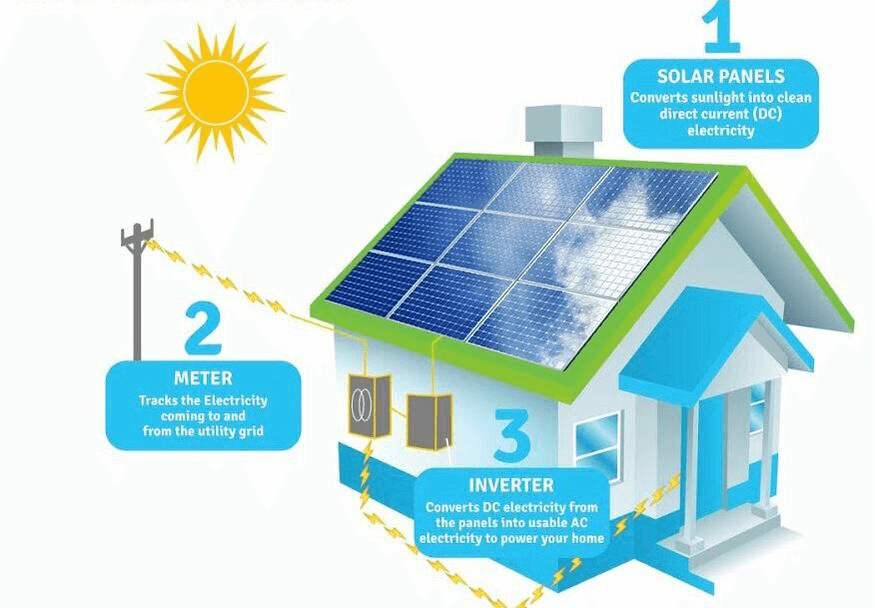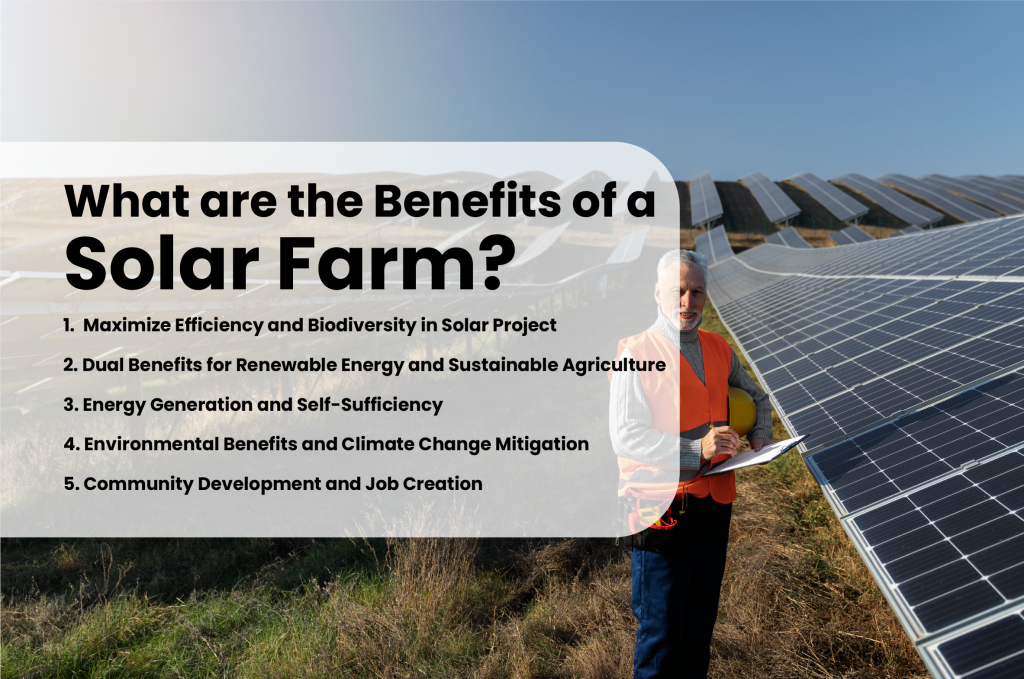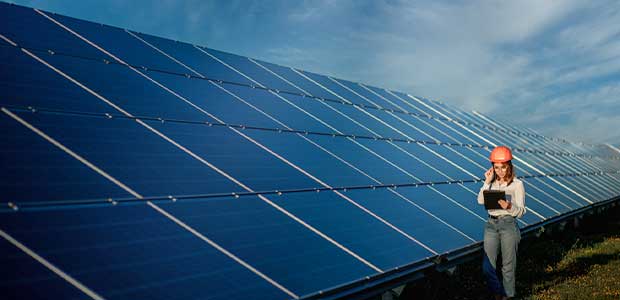Why Choose Simply Solar Illinois for Eco-Friendly Energy Solutions?
Why Choose Simply Solar Illinois for Eco-Friendly Energy Solutions?
Blog Article
Solar Energy 101: A Beginner's Overview to Sustainable Power Solutions
As the world significantly shifts in the direction of sustainable energy services, comprehending the basics of solar power comes to be crucial for both people and organizations. By checking out the benefits of solar innovation, alongside the economic incentives and setup processes, one can obtain a clearer point of view on exactly how to properly integrate this eco-friendly source right into their power approach.
Understanding Solar Power
At its core, recognizing solar power entails understanding the basic concepts of exactly how sunshine can be exchanged usable electrical energy. Solar power is stemmed from the sunlight's radiation, which can be used with numerous modern technologies. The key system for this conversion is the photovoltaic or pv result. This sensation happens when sunshine strikes semiconductor materials, commonly silicon-based, within solar cells. The energy from the sunshine thrills electrons in the semiconductor, enabling them to move freely and generate direct current (DC) electrical energy.

Understanding solar power additionally involves recognizing its ecological advantages. By using sunshine, we can reduce greenhouse gas emissions and decrease air pollution, adding to a more lasting future. The improvements in modern technology and efficiency of planetary systems remain to enhance their feasibility, making solar power an increasingly eye-catching option for worldwide power needs.
Types of Solar Energy Systems
Various kinds of solar energy systems are generally employed to harness solar power for electrical energy generation. The main classifications consist of photovoltaic (PV) systems, focusing solar power (CSP) systems, and solar thermal systems.
Photovoltaic systems utilize photovoltaic panels composed of silicon cells that convert sunshine directly into electrical power. These systems are versatile and can be installed on roofs, ground installs, or integrated right into structure materials.
Concentrating Solar energy systems, on the various other hand, use mirrors or lenses to focus sunshine onto a tiny location, generating warmth that drives a vapor wind turbine to produce electrical energy - Simply Solar Illinois. CSP systems are generally released in large nuclear power plant and require direct sunlight, making them less ideal for over cast areas

Each kind of solar power system has its special Click Here attributes, applications, and viability relying on geographical area, power needs, and budget plan, making it important to assess options based on specific scenarios. - Simply Solar Illinois

Advantages of Solar Power
Utilizing solar energy via various systems not only supplies a sustainable way to create electricity yet likewise uses a wide range of advantages. One of the most significant benefits is the decrease in greenhouse gas exhausts, adding to a cleaner atmosphere and combating climate modification. Solar power is renewable, meaning it is inexhaustible and readily available as long as the sun beams, unlike nonrenewable fuel sources, which are limited and diminishing.
Additionally, solar power can cause substantial expense savings with time. House owners and services can decrease their electrical power expenses considerably, and in most cases, they may gain credit ratings for excess power produced through internet metering. Furthermore, the solar sector creates jobs, from producing to setup, boosting regional economies.
One more compelling advantage is energy independence. By creating their very own electricity, people and areas can decrease dependence on external energy resources, boosting resilience versus changing power rates and supply interruptions. Furthermore, solar energy systems call for marginal upkeep, making them a hassle-free choice for lasting energy generation.
Setup Refine Summary
The installation procedure for solar power systems commonly includes a number helpful site of key actions that make certain efficient combination into a residential or commercial property. An extensive site analysis is performed to evaluate the roofing system's alignment, shielding, and structural integrity, which are essential to maximizing solar panel performance. Following this evaluation, the style phase commences, where a customized solar power system is configured based upon the home owner's power demands and preferences.
As soon as the style is finalized, the required authorizations and approvals are acquired from regional authorities, ensuring conformity with laws. The real installation includes mounting the photovoltaic panels on the roof or ground, linking them to an inverter, and integrating the system with the property's electric setup. This stage may likewise include mounting battery storage systems, depending upon the layout.
After installation, a thorough assessment is carried out to confirm the system's functionality and security. Finally, the system is commissioned, and property owners are informed on its procedure and maintenance. With the installation complete, the solar power system can begin producing eco-friendly power, adding to sustainability and reducing energy prices. This structured method guarantees that solar systems are both efficient and reliable, maximizing their long-lasting advantages.
Financial Rewards and Savings
Checking out the financial incentives and savings connected with solar energy systems can substantially boost the appeal of making the switch to renewable energy. One of the most remarkable rewards is the federal solar tax debt, which allows property owners to deduct a portion of their solar system installment costs from their government tax obligations.
In addition to tax credit scores, several states supply rebates that can better lower upfront costs. Some utility companies likewise offer performance-based rewards, gratifying solar power production in time. Funding choices, such as solar loans and leases, enable consumers to set up systems with little to no deposit, making solar power more obtainable.

Lasting cost savings are one more critical variable. By producing their very own electrical power, home owners can substantially lower or perhaps remove their month-to-month energy costs. In addition, solar systems can enhance property values, supplying a solid return on financial investment. On the whole, the combination of incentives and savings makes solar power an economically attractive choice for numerous homes.
Conclusion
Finally, solar power represents an important part of lasting power from this source services, offering a pathway towards minimized carbon footprints and boosted ecological security. The diverse sorts of solar power systems, paired with significant monetary incentives, facilitate broader adoption among people and communities. Comprehending the installment processes and advantages connected with solar power equips stakeholders to make enlightened decisions. Inevitably, the shift to solar power not only cultivates ecological responsibility however likewise advertises economic savings and energy self-reliance.
Report this page